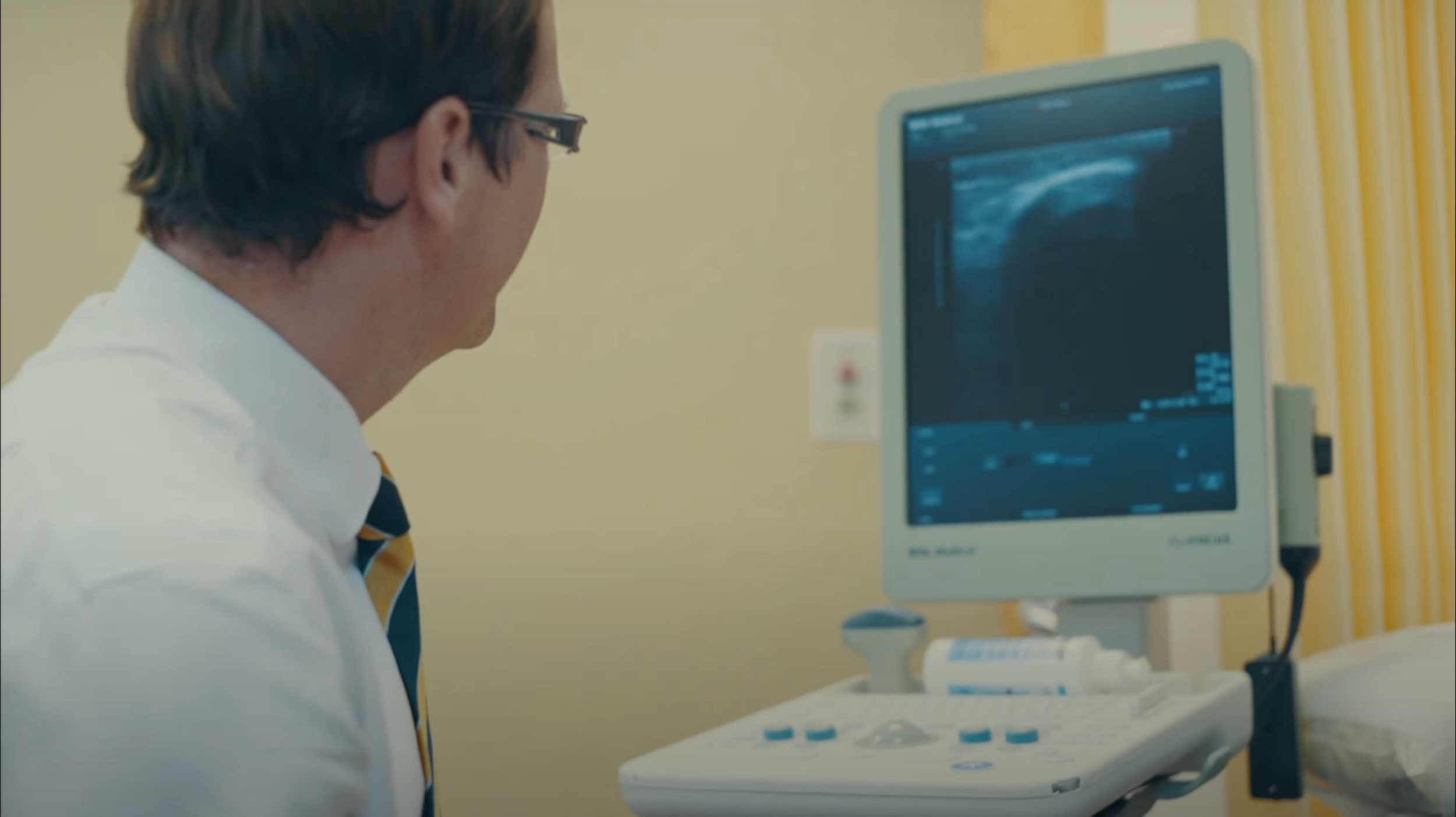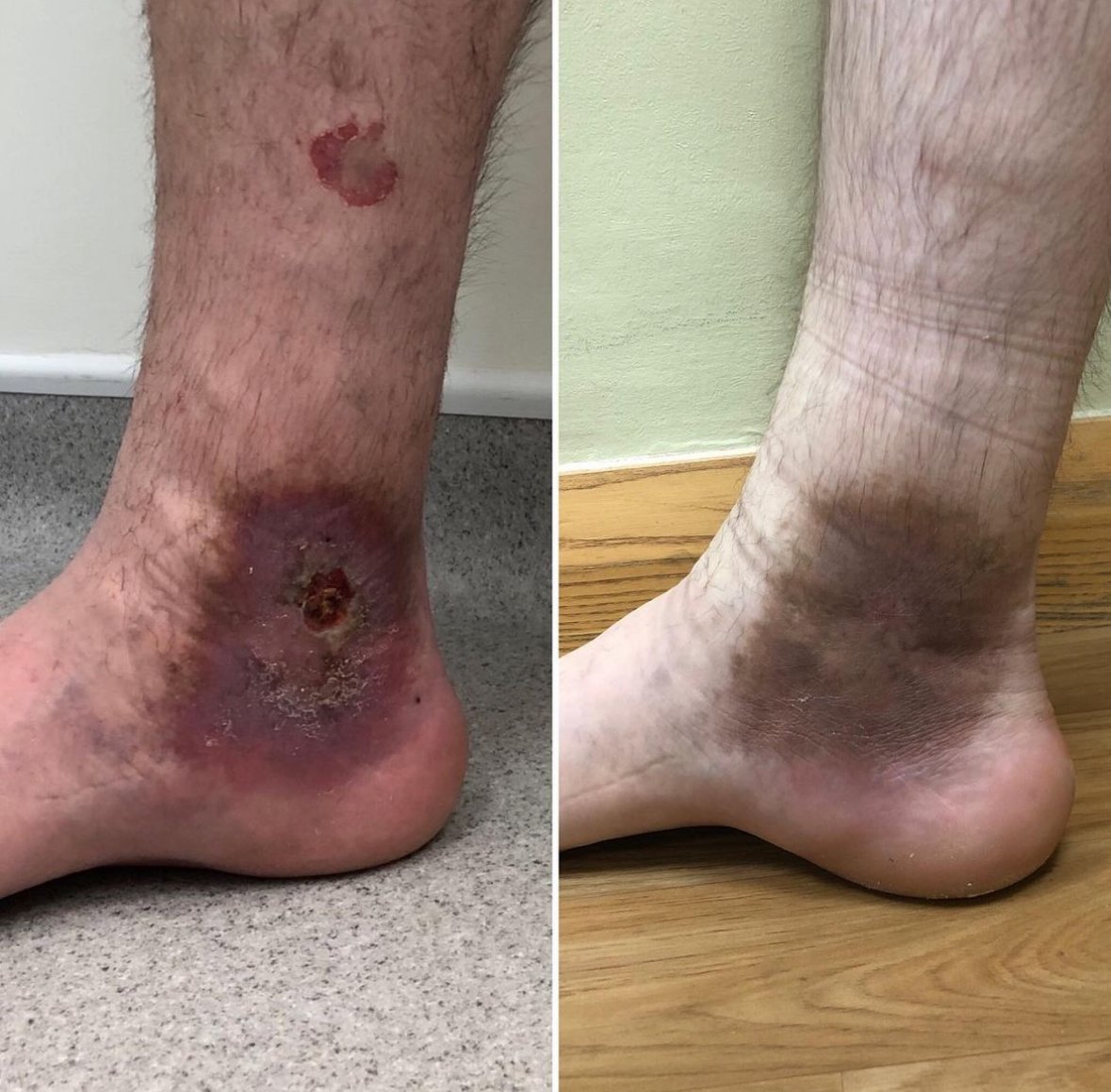
Leg Ulcers
Treat early to prevent months of suffering
We specialise in leg ulcer treatment
Size of the Problem
We know how difficult life with a leg ulcer is.
They can be painful, wet and sometimes smelly.
A large part of your life will revolve around waiting for nurses to visit to change dressings - this is labour intensive. It’s no wonder that leg ulcer treatments take up 1-2% of NHS spending.
Ulcers are not only expensive, they severely impact your quality of life and your freedom.
Our 7-point plan will help get to the bottom of what is causing the ulcer, recommend appropriate treatment to heal and then maintain your legs in their healthiest possible state.
Early Recognition and Referral
A leg ulcer is defined as a leg wound that takes longer than 2 weeks to heal.
There is good evidence that the earlier a leg wound is investigated and treated the quicker it will heal and the lower the chance you have of it coming back.
Wounds that have been present for a long time can be challenging to treat and can take some time to heal despite successful treatment.
If you develop a leg wound, it is important to have this looked at quickly by a leg wound specialist.
Ankle Brachial Pressure Index (ABPI)
An ABPI or Doppler test is an essential investigation when managing leg ulcers. This test assesses the blood supply to the leg via the arteries. Blocked arteries can reduce the healing of leg wounds so it is important to ensure that the blood supply is good.
As the mainstay of treatment is tight compression, we also have to ensure that the blood supply is good enough to allow compression of the leg.
The test involves using a Doppler machine to listen to the arteries at the ankle and a blood pressure cuff around the lower calf to measure the blood pressure at the ankle - this is then compared to the blood pressure in your arm.
Venous Assessment
As most leg ulcers are a result of venous disease it is essential that the veins are assessed to identify any problems.
A venous ultrasound scan is used to map out the veins in detail and see if any of the veins relate to the ulcer. The scan also looks at the function of the veins and assesses if the one way valves in the veins are working as they should.
The results of the ultrasound scan will determine if you will need any treatment on your veins to help your ulcer to heal.
Leg Compression
Good quality leg compression is the mainstay of treatment of leg ulcers. This can be in the form of compression bandages, compression stockings or Velcro wrap garments. Properly applied and worn this helps to reduce leg swelling and speeds up ulcer healing.
Leg ulcer wound care and compression is usually managed by our specialist community nursing teams . We are able to offer specialist advice to the nursing teams on type of compression and dressings for the wound.
It is important that an ABPI test is performed prior to compression being applied.
There is very good evidence now that treating underlying vein problems early significantly speeds up the rates at which ulcers heal and also reduces the risk of them recurring.
Treatment is usually in the form of minimally invasive procedures, often radiofrequency ablation or foam sclerotherapy and can be performed as a walk-in, walk-out procedure under local anaesthetic
Early Vein Treatment
Skin Care
A good skin care regime is essential for patients with leg ulcers. Ulcers are often associated dry, scaly skin. Fluid leakage from the ulcer can also result in areas of skin damage similar to a superficial burn.
It is important to regularly wash the leg between dressing changes with simple, unperfumed soaps and patting the leg dry.
Regular use of a simple moisturiser such as E45 or even olive oil helps maintain the health of the surrounding skin, preventing further ulcers developing.
Maintenance
Once a leg ulcer has healed there are many important things that you can do to help prevent it coming back.
Wear compression socks
Good skin care
Maintain a healthy weight
Exercise regularly
Treat underlying vein problems
Do you suffer from a leg ulcer?
Book a consultation now
Click the link to complete our enquiry form and a member of our team will be in touch








